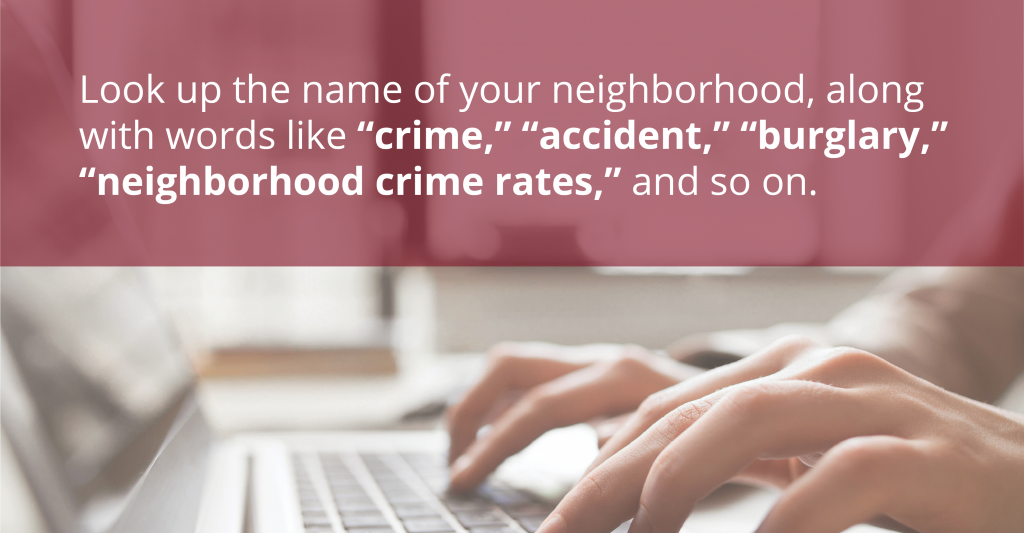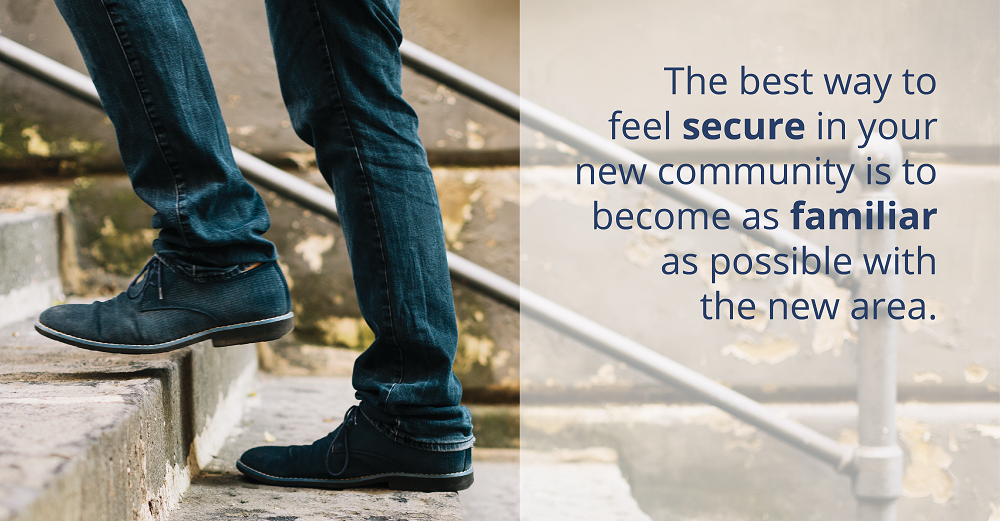
Your safety and security are likely top priorities — as they should be. Finding a safe neighborhood doesn’t have to be a challenge.
To get started, run a basic news search to get a feel for the area. Look up the name of your neighborhood, along with words like “crime,” “accident,” “burglary,” “neighborhood crime rates,” and so on. As you browse the stories, note any statistics that stand out or how frequently incidents seem to occur.
Remember — crime happens anywhere and everywhere, so pay attention to how quickly first responders arrived and how they handled the situations that occurred.

After running a basic search, ask around. If you’re local to the area you’re looking to live in, this may be less important. However, if you’re new to the area, talking to friends who may be more familiar with the level of safety in the area could be helpful.
Next, check out the National Sex Offender Registry. This site offers community statistics, along with local information relating to offenders who may live near your potential area. Once again, this is not a guarantee that the area is safe, but it could ease a few of your fears.
Another way to gauge the security of your potential rental is to look at a crime mapping service. This will provide information on crime that may be easier to sort than a general online search.
If you have children or are considering searching for a long-term rental, school ratings might be worth checking into. While school ratings don’t correlate to safety, poor ratings could provide an indication that something more is going on.
Take the time to visit your potential home and walk around the surrounding areas. While performing your walk:
Once you make a decision and move in, practicing safe living and taking a few extra precautions to ensure your security may help you feel at ease.
A lot of apartment security relates to simply practicing common sense. Even if you’re living in the safest neighborhood to your knowledge, your safety is not guaranteed. Security steps worth paying attention to include:
Talking to your community management team may also help ease any fears or concerns you have about your new lifestyle. To start, ask about the locks. Locks should be changed between tenants. Be sure to ask if this has happened and if a new lock was installed, as opposed to one simply being taken from another home and re-used.
Another extra security step is to look at your window locks. Be sure there are no potential security breaches with your new home. If a lock seems “faulty,” loose or missing, ask that it be replaced before moving in.
You might wonder whether a security system is worthwhile. Remember that a lot of security is based on your actions and whether you take the time to lock your new home properly. Beyond this, installing a security system is a personal decision you can make based on your level of comfort. It is possible that a system would mitigate the break-in risk, but it’s not guaranteed. Not all security providers sell to renters, but you can check around for those that do.
Other security measures include tools you can install on your own. These include, but are certainly not limited to:
It’s important to discuss these measures with your new community manager to ensure they are compatible with your new space.
An extra step of protection, whether you install a security system or not, is to develop your emergency plan. Take the time to become familiar with all entrances and exits in your new community. Talk to family members about potential emergencies and natural disasters and set a common meeting point. Also, learn the locations and phone numbers of local emergency responders, hospitals and so on. Preparation is always worthwhile.
The best way to feel secure in your new community is to become as familiar as possible with the new area.
Take your time to walk the dog or get outside to meet your neighbors. Ask about local attractions, as well as the locations that would be better to avoid in your new neighborhood and its surrounding areas.
By exploring your neighborhood and paying attention to the news, you’ll become more familiar with your new surroundings. As time goes on, you’ll become more comfortable based on the knowledge you obtain.
